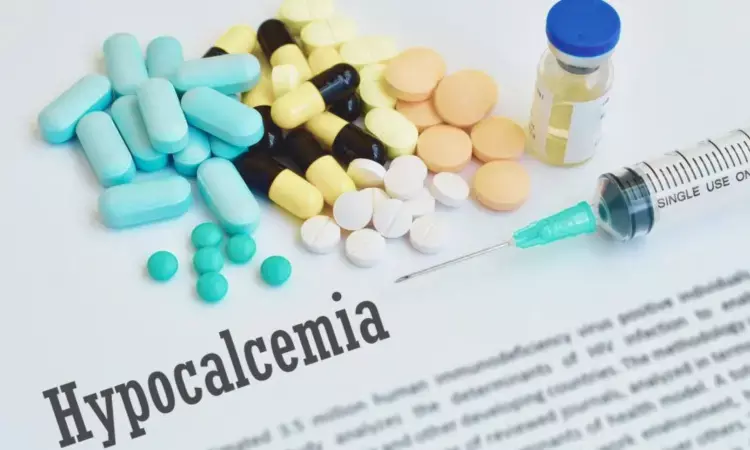- Home
- Medical news & Guidelines
- Anesthesiology
- Cardiology and CTVS
- Critical Care
- Dentistry
- Dermatology
- Diabetes and Endocrinology
- ENT
- Gastroenterology
- Medicine
- Nephrology
- Neurology
- Obstretics-Gynaecology
- Oncology
- Ophthalmology
- Orthopaedics
- Pediatrics-Neonatology
- Psychiatry
- Pulmonology
- Radiology
- Surgery
- Urology
- Laboratory Medicine
- Diet
- Nursing
- Paramedical
- Physiotherapy
- Health news
- Fact Check
- Bone Health Fact Check
- Brain Health Fact Check
- Cancer Related Fact Check
- Child Care Fact Check
- Dental and oral health fact check
- Diabetes and metabolic health fact check
- Diet and Nutrition Fact Check
- Eye and ENT Care Fact Check
- Fitness fact check
- Gut health fact check
- Heart health fact check
- Kidney health fact check
- Medical education fact check
- Men's health fact check
- Respiratory fact check
- Skin and hair care fact check
- Vaccine and Immunization fact check
- Women's health fact check
- AYUSH
- State News
- Andaman and Nicobar Islands
- Andhra Pradesh
- Arunachal Pradesh
- Assam
- Bihar
- Chandigarh
- Chattisgarh
- Dadra and Nagar Haveli
- Daman and Diu
- Delhi
- Goa
- Gujarat
- Haryana
- Himachal Pradesh
- Jammu & Kashmir
- Jharkhand
- Karnataka
- Kerala
- Ladakh
- Lakshadweep
- Madhya Pradesh
- Maharashtra
- Manipur
- Meghalaya
- Mizoram
- Nagaland
- Odisha
- Puducherry
- Punjab
- Rajasthan
- Sikkim
- Tamil Nadu
- Telangana
- Tripura
- Uttar Pradesh
- Uttrakhand
- West Bengal
- Medical Education
- Industry
Low Calcium Levels May increase transfusion need, Worsen Surgical Outcomes in Elderly Hip Fracture Patients, Study Finds

China: A recent retrospective study has found that hypocalcemia-low calcium levels in the blood-may significantly contribute to increased perioperative blood loss and a greater need for blood transfusion in elderly patients undergoing surgery for hip fractures. The study revealed that in elderly patients undergoing hip fracture surgery, hypocalcemia (serum calcium <2.15 mmol/L) was found to significantly increase perioperative blood loss and the likelihood of requiring a blood transfusion.
“Patients with hypocalcemia recorded greater blood loss on both the first (714.91 ml vs. 640.31 ml) and fifth (1035.87 ml vs. 859.92 ml) postoperative days compared to those with normal calcium levels,” the researchers reported in BMC Surgery. They further noted that these patients also had higher transfusion rates, suggesting that timely correction of calcium levels may help reduce such complications and improve surgical outcomes.
Hip fractures in the elderly are already associated with high morbidity and mortality, making effective perioperative management crucial. The researchers note that the added burden of hypocalcemia, often overlooked in routine assessments, could worsen patient outcomes by increasing complications related to excessive blood loss and transfusion, such as infections, delayed recovery, and longer hospital stays. Shilong Su, Department of Orthopedics, Peking University Third Hospital, No.49 North Garden Road. Haidian, Beijing, China, and colleagues aimed to investigate the impact of hypocalcemia on total blood loss and the need for blood transfusion in elderly patients undergoing surgery for hip fracture.
For this purpose, the researchers included elderly patients with hip fractures who underwent surgery at their hospital between January 2020 and May 2023. They collected and analyzed data on demographics, perioperative parameters, hemoglobin and hematocrit levels, and transfusion requirements. Hypocalcemia was defined as an albumin-corrected calcium level below 2.15 mmol/L. Total blood loss was calculated for each patient using the Nadler and Gross formulas, while blood loss on the first and fifth postoperative days was also assessed.
Key Findings:
- The study included a total of 682 elderly patients with hip fractures.
- The prevalence of hypocalcemia on admission was 40.47%.
- Total blood loss on the first postoperative day was significantly higher in the hypocalcemia group compared to the normocalcemia group (714.91 ± 396.05 ml vs. 640.31 ± 398.83 ml).
- On the fifth postoperative day, total blood loss remained higher among hypocalcemia patients (1035.87 ± 528.77 ml vs. 859.92 ± 434.99 ml).
- Patients with hypocalcemia showed higher rates of preoperative, postoperative, and perioperative blood transfusion than those with normal calcium levels.
The study concluded that hypocalcemia significantly contributed to greater total blood loss and higher blood transfusion requirements in elderly patients undergoing hip fracture surgery, highlighting the importance of monitoring and managing calcium levels to improve perioperative outcomes.
Reference:
Zhang, Y., Lu, K., Liu, Q. et al. Hypocalcemia was associated with increased perioperative blood loss and blood transfusion in elderly patients with hip fracture: a retrospective study. BMC Surg 25, 134 (2025). https://doi.org/10.1186/s12893-025-02872-2
Dr Kamal Kant Kohli-MBBS, DTCD- a chest specialist with more than 30 years of practice and a flair for writing clinical articles, Dr Kamal Kant Kohli joined Medical Dialogues as a Chief Editor of Medical News. Besides writing articles, as an editor, he proofreads and verifies all the medical content published on Medical Dialogues including those coming from journals, studies,medical conferences,guidelines etc. Email: drkohli@medicaldialogues.in. Contact no. 011-43720751


